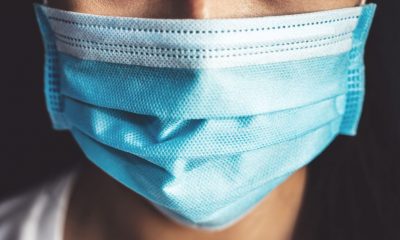Health
MENTAL HEALTH CARE TIPS THIS COVID-19 PANDEMIC


It has been almost two months since the country was placed under Enhanced Community Quarantine due to the Corona Virus Disease 2019 (COVID-19). The COVID-19 pandemic is one of the biggest and scariest health threats of this generation after the Flu pandemic of 1968. Add to that the HIV/AIDS pandemic that, though recorded to be at its peak between 2005-2012, still is one of the diseases that continues to claim the lives of the world’s population.
VALUABLE LESSONS
The COVID-19 pandemic has taught all of us a valuable lesson. We have realized how important family really is, we learned how important our jobs are, and we understood the value of good health.
Aside from wearing masks, observing social distancing, and constant hand washing, a lot of us have been doing the best we can to make sure that we are all in good shape. We started sanitizing everything we can sanitize. Most, if not all of us began eating healthy, we became physically active, and started taking vitamins, boosting our immune system. All of us try to live a healthier lifestyle now.
These are all vital measures to prevent the spread of the virus. However, the fight against the COVID-19 pandemic is not just about our physical health.
PSYCHOLOGICAL WELL-BEING
As the number of COVID positive rises and the longer people are quarantined at home, many of us will get more fixated with news and updates about the pandemic. The more we read about the Corona Virus, the more we get tensed, worried, anxious, angry, and exhausted. And this is not good for our psychological well-being. In this case, it becomes more apt to say that the true battlefield against this invisible enemy is the mind.
Read on to learn about Mental Health care tips compiled by Asia Society Philippines.
1. Breathe and stay calm
A pandemic is a rare – and for most of us, new – phenomenon. It is beyond any single person’s control, and so it can be overwhelming for some. It naturally triggers anxiety. But pandemics have in fact been beaten in the past. By scientists, by governments, by all nations and sectors working together. Knowing that should give us a starting point to breathe.
Remain calm. COVID can make us feel helpless. Regain your sense of control. How? By focusing on things that you actually have control of. Your body, your thoughts, your home. Control your body. Practice some conscious breathing exercises. Take time for meditation. And engage yourself in distractions or activities.
2. Engage more in healthy activities
It is strongly recommended for people to engage in healthy activities they enjoy yet find relaxing. You would know best what would soothe you and preoccupy your mind with better vibes. There are no rules to homing in on your peace! Healthy activities can include your personal rituals of hygiene, fixing and managing your surroundings, establishing daily routines – all within the bounds of ‘social distancing’, of course. See these temporary moments of isolation as opportunities to create new routines that are still productive and rewarding.
3. Stay connected
Even if in self-isolation, it is important to stay connected. Checking in on family, friends, colleagues, and neighbors, especially those who are in need of extra assistance, via phone or social media. Staying connected also includes spending extra quality time with loved ones. Having someone to talk to can be very helpful during days that one can find overwhelming. “Social Distancing” is a misnomer. The real call is for “physical distancing”, the effect should be for social solidarity.
4. Take breaks from breaking news
We all want and need to be informed and updated. That comes with regaining our sense of control. But recognize that information overload can also add to anxiety. Manage your anxiety by catching up on news at specific times of the day. Make it PART of your routine, not THE routine. Some mental health associations and organizations recommend building a news reading or watching routine that takes place just once or twice a day.
Of course, avoid fake news. Make sure to read or watch only from credible sources such as the WHO and local health authorities. Avoid misinformation and further distress.
5. Take online consultations (if needed)
Thanks to technology already at your fingertips, mental health professionals and organizations remain available and accessible. Many online counseling services can be searched online.
Let us not forget that mental health is as precious as physical health. As we continue the fight against COVID-19, and prepare to face this so-called “New Normal,” let us not forget that we must also look after our mental health.
Source:
asiasociety.org














